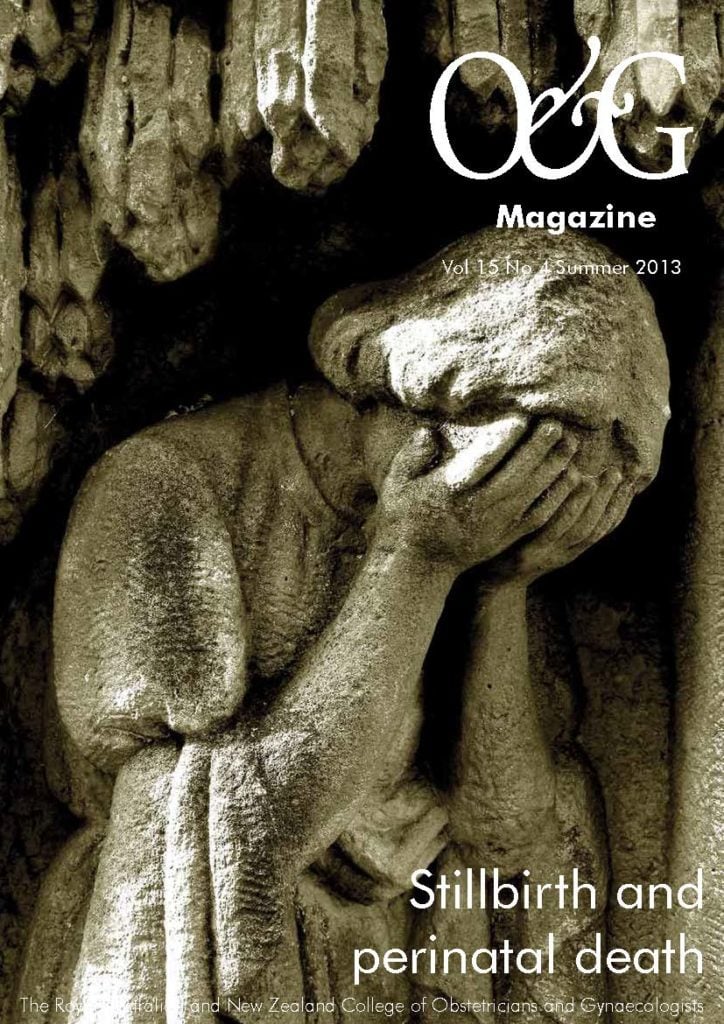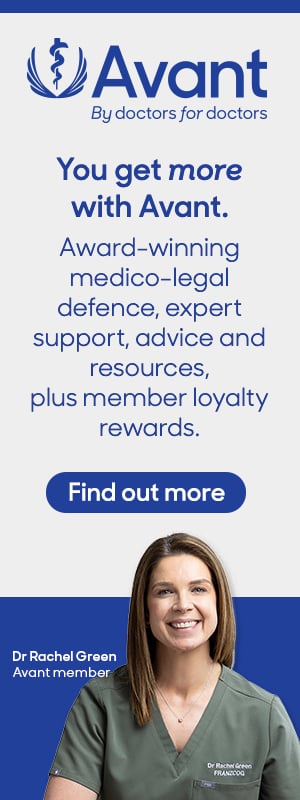What does the future hold for training in laparoscopic gynaecological surgery?
In my roles within the College and Australian Gynaecological Surgery and Endoscopy Society (AGES), and in my working life I commonly hear discussion about both the quantity and quality of surgical training available in gynaecology. It is well known that Trainees and, for that matter, Fellows, particularly in the public system, have experienced a notable decline in the number of major surgical procedures with which they are involved. This decline may be due to a combination of: an increase in the number of practitioners; a decrease in the number of working hours; and new interventions that bypass the need for surgery. Decreasing exposure to surgical procedures has obligated us to look at new ways to deliver surgical training. This article will focus on laparoscopic surgical training and how we can maximise training opportunities within the limits of the current training environment.
What skills should a Trainee aim to acquire?
There is general consensus that the award of FRANZCOG no longer provides evidence that the new Fellow is equipped to perform every gynaecological procedure. During its deliberations, the Training Review Working Party (TRWP) recognised that not every Fellow could or should be able to perform every procedure, and the group carefully considered what skills a Trainee should obtain to be a Fellow of the College. Future Trainees and specialists will need to seek out training opportunities and obtain credentialing in the areas they wish to work. Laparoscopic surgery is one of those areas where extra training will be required. It is the College’s position that a new Fellow will have the skills and experience they desire to work in their particular scope of professional practice as a specialist. The challenge is to marry the appropriate training experiences with the appropriate Trainee. It is the College’s aim to guide training and accredit the appropriate training opportunities. The curriculum will guide the expectations of training outcomes and the Advanced Training Modules (ATMs) should provide the experience.
Not all people are born to be laparoscopic surgeons. Yet, up until now, Trainees were all expected to be able to perform like one. The new training program will mean that the ever-decreasing surgical training opportunities can be directed towards those Trainees who wish to pursue a career in gynaecological surgery. Those who do not have the interest or the aptitude can concentrate their learning in the areas of the specialty they find more rewarding and appealing.
The aim of the new training program is to ensure all Trainees can competently and confidently perform level two laparoscopic surgical procedures by the end of core training. These skills include basic diagnostic laparoscopy, laparoscopic sterilisation and treatment to minimal endometriosis. Ideally, most Trainees will have had enough experience to manage a tubal ectopic pregnancy laparoscopically. However, with the renewed interest in medical management of ectopic pregnancy, laparoscopic surgery to treat ectopic pregnancy may ultimately become an advanced procedure.
After completion of core training, Trainees will need to seek out ATMs to extend their skills in areas of interest. It is envisaged the College will develop and formalise a laparoscopic surgery ATM. The aim of this extra training will be to extend the Trainees’ skills, allowing them to perform level four procedures such as laparoscopically assisted vaginal hysterectomy, total laparoscopic hysterectomy and excision of level three endometriosis. Those Trainees wanting to go further and perform laparoscopic sacrocolpopexy or to treat advanced endometriosis, may need to do additional post-Fellowship training. This training could be achieved by spending two years in an appropriate laparoscopic ATM, by joining the urogynaecological subspecialty training program or completing an AGES laparoscopic surgery fellowship.
What is the best way to approach training?
Trainees need to be engaged in, and motivated towards, their training. The best form of training involves structured task-based learning that is repetitive in nature and where a trainer is available to provide immediate and constructive feedback. Unfortunately, in the current work-based models of training, cases are often too complex and too infrequent to allow for structured repetitive training. Where once we relied on the volume of workload to train our Trainees, it is now incumbent on all of us to seek out new ways of training.
Maximise experience before patient contact
In recent years, a lot of research has been undertaken on surgical training techniques. Simulation is increasingly becoming an integral part of training. Surgical simulations involve many different techniques, including bench models, live animal workshops, cadaver workshops and virtual-reality trainers. The latter draw more interest than simple ‘box’ trainers, but are more expensive and labour intensive. The important thing is for training to be effective and learning sustained, it needs to be both deliberate and repetitive. The best thing a Trainee can do is obtain a basic box trainer and sit down on a regular basis with a mentor – who could be a consultant, senior Trainee or layperson – who can provide direct instruction and feedback. The Trainee should practise tasks such as laparoscopic suturing and intracorporeal knot tying. By spending many hours practising these skills a Trainee can learn the visual and tactile cues required for working in the two-dimensional environment.
If a Trainee can comfortably tie a knot in a box trainer, chances are when they are given an opportunity to operate on a live patient they will do well. The worst thing you can do is attempt to do something laparoscopically and fail to demonstrate the basic skills. No one would expect to be able to attempt a caesarean section if they had not sutured an episiotomy. Likewise, one should not expect to do a laparoscopic operation unless they have demonstrated the ability to move instruments purposefully through the abdomen, grasp structures appropriately and hold a camera reliably. A simple box trainer can provide these skills.
Make every patient contact a learning experience
We have all heard the saying ‘practice makes perfect’. Like everything these days, old is new again and Ericcson et al have given validity to this statement, demonstrating that 10 000 hours of practice is required to make one an expert.1 Unfortunately, we are at the mercy of hospital budgets, bed closures, decreasing clinical material and decreased working hours: all of these are impediments to obtaining hands-on surgical skills.
Given these restrictions, new ways of acquiring skills are required to gain experience. Laparoscopic surgery lends itself to learning by assisting. Do not feel deprived if you cannot be the primary surgeon. Cases are becoming increasingly complex and the lists often run late. These factors, coupled with the expectation of more consultant input, make first operator experience more difficult to obtain. Consider assisting as a learning experience:
- Concentrate on following the operation with the camera.
- Zoom in and out as required.
- Follow specimens and needles up to the port sites.
- Follow the surgeon’s instrument around the pelvis.
- Try to predict where the surgeon wants to go next: assist actively. Bring your instrument into the surgical field.
- Be ready to grasp tissue when asked.
Being an active assistant enables you learn valuable skills and practise hand-eye coordination.
When given the opportunity to be a primary operator, break the operation down into steps. In more complicated cases do not expect to complete the whole operation on the first attempt – aim to learn the operation step by step. For example, at laparoscopic hysterectomy the first step you may learn is suturing the vault. When you can do that in a timely fashion you can gradually move on perform the rest of the operation, which by now you have had the chance to observe on several occasions.
Learn as much about the procedure as you can before the operation. Knowing the basic anatomy and what to expect during surgery will enable you to remember more during the operation. After the operation is finished, write down what you have seen so that you can refresh your memory before the next case.
What is the value of attending workshops?
When contemplating the acquisition of new skills, surgeons commonly look at attending conferences and workshops. Laparoscopic conferences should be inspiring. Attend the conferences to be impressed by the innovations, but always remember that the wonderful feats that impress you are not everyday practices and the real world is often very different. Back at home your practice will be restricted by equipment, case load, experience and what is in the best interest of your patients. Robotic surgery is a great example of this, with the American Congress of Obstetricians and Gynecologists stating quite clearly that its use is not justified in benign gynaecology at the moment.
Workshops, on the other hand, should be practical and pitched at a level that suits the participant. The best workshop is the one that meets your training needs. There is no point attending a workshop on laparoscopic sacrocolpopexy unless you are at an appropriate stage in your career, and have the caseload, to introduce it to your practice. Before you sign up to a workshop make sure the workshop has clearly stated goals that are pitched at your level of experience. Make sure there is hands-on supervision: one trainer for every two participants works well with laparoscopic surgery. Make sure the hands-on component of the workshop accounts for the majority of the time you spend training. The best workshops will be run over a few days. This gives you the opportunity to repeat skills over several sessions, which will improve retention. Trainees should look for workshops that teach laparoscopic suturing, intracorporeal knot tying and vaginal vault closure. In addition, workshops can provide training on electrosurgical, ultrasonic and morcellation equipment.
Should laparoscopic surgery be a subspecialty?
We live in a world where laparoscopic surgery should be the procedure of choice for most benign gynaecological conditions. With gynaecological oncologists using laparoscopic surgery for the most complex of patients, the old excuses of it’s too big, too hard or not safe are rapidly becoming myths. No patient should undergo a laparotomy because of the surgeon’s lack of laparoscopic skills. The world of tomorrow will demand that you up-skill or refer to a tertiary service. The reality is that this work will become the work of those with special skills. However, I believe that all those practising operative gynaecology should have the skills to perform levels three or four laparoscopic surgery. A combination of seeking out advanced training positions that have the required training opportunities, regularly using surgical simulation as a training tool and attending workshops structured at an appropriate skill level will give today’s Trainees who choose to practise operative gynaecology the skills they need to fully utilise laparoscopic surgery in their day-to-day practice.
Further reading
- Weg T. Teaching and assessing surgical competence. Ann R Coll Surg Engl 2006; 88: 429-432.
- Moulton C-A, Dubrowski A, MacRae H, Graham B, Grober E, Reznick R. Teaching surgical skills: What kind of practice makes perfect? A Randomized controlled trial. Ann of Surgery 2006; 244(3): 400-409.
- Reznick R, MacRae H. Teaching surgical skills – Changes in the wind. N Engl J Med 2006; 355 (25): 2664-2669.
- Ephgrave K. How to approach teaching as a surgical skill. Amer Coll Surg 2008 Div of Edu: RAP.
References
- K. Anders Ericsson, Ralf Th. Krampe, and Clemens Tesch-Romer. The Role of Deliberate Practice in the Acquisition of Expert Performance. Psychological Review 1993, Vol. 100. No. 3, 363-406.






Leave a Reply